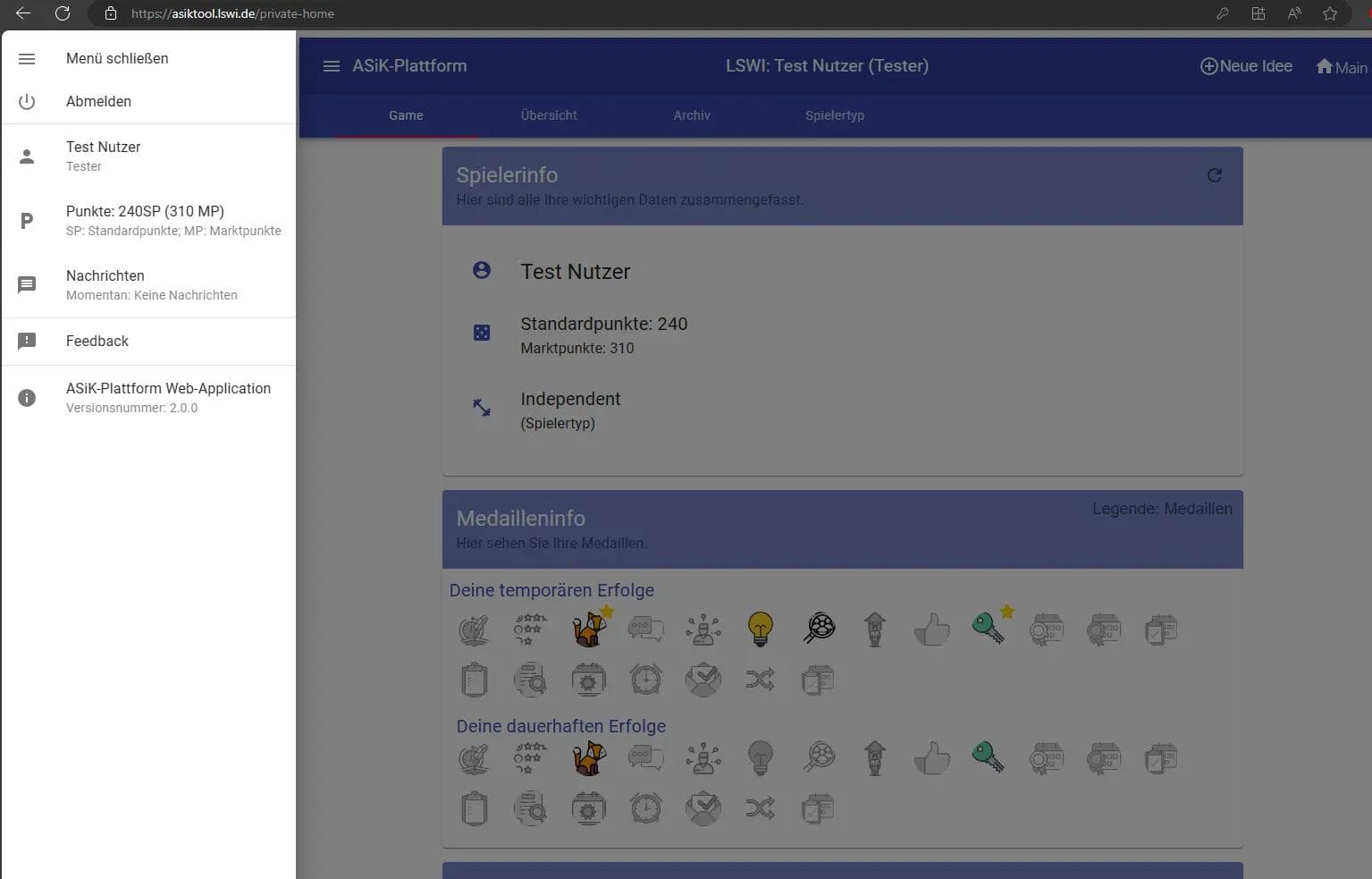
ASIK – Adaptive Gamification App
A full-stack web application designed to gamify internal idea management processes within companies. Developed for the LSWi Potsdam, this tool incentivized employee participation in submitting, reviewing, and collaborating on ideas through a dynamic points and badge system, adapting rewards based on user-defined roles and contributions.
Overview & Background
Problem Statement: Many companies struggle with fostering consistent employee engagement in internal idea management systems. Traditional methods often lead to low participation rates for idea submission and review. There was a research gap in understanding how adaptive gamification could incentivize diverse contributions based on individual preferences and roles.
Motivation: To create an innovative web platform that dynamically motivates employees to actively participate in all phases of idea management. The goal was to build a tool for research purposes, allowing the Chair to study the impact of adaptive gamification on engagement, idea quality, and collaborative behavior within corporate contexts.
Status: This was a research project application, which is no longer live.
Project Status: Research Project (No longer actively hosted)
Research Page: LSWI - ASIK
Source Code: Confidential (developed for the Chair of Information Systems, University of Potsdam)
My Role
Sole Full-Stack Developer & Technical Collaborator
Project Duration
12 month
Technical Details
Technologies Used
Challenges & Solutions
Challenge 1
Implementing Complex, Adaptive Gamification Logic:
The core challenge was to design and implement a dynamic point and badge system where rewards were not static but adapted based on a user's self-declared "preferred role" (determined by a questionnaire) and the type of contribution (e.g., idea submission, review, collaboration). This required sophisticated backend logic and a flexible data model.
Solution
Developed a custom PHP-based REST API with a MySQL database to manage user profiles, questionnaire data, role-based weightings, and real-time point calculations. This API was designed to handle the adaptive scoring and badge awarding based on user actions, ensuring data consistency and security.
Challenge 2
Frontend Development with Evolving React Paradigms:
Developing the interactive frontend during a period when React's best practices were rapidly evolving (e.g., prevalent use of class components, complexities with React Context). Building a responsive and engaging UI with Material UI while managing state in a less standardized environment posed specific challenges.
Solution
Leveraged React class components and managed complex component lifecycles (componentDidMount, componentDidUpdate) to create the dynamic user and admin dashboards. Strategically utilized Material UI for consistent design components, customizing them to fit the application's unique visual and functional requirements. Overcame early React Context complexities by carefully structuring state management for different application areas.